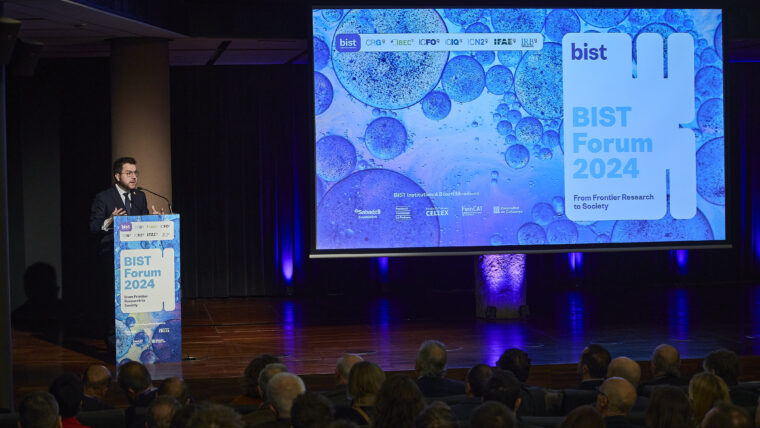
BIST Ignite Awards
Clean Planet researchers involved in 3 out of a total of 5 projects.
January 11, 2024
The BIST scientific community, made up of seven major Catalan research centers – CRG, IBEC, ICFO, ICIQ, ICN2, IFAE, and IRB Barcelona– held the BIST Forum today in the auditorium of La Pedrera. This year, the annual meeting dealt with the three main areas to which frontier research in Catalonia contributes: the expansion of knowledge, the change in the productive model and the development of society. The president of the Generalitat, Pere Aragonès, inaugurated the Forum, which brought together two hundred people from the scientific, political, economic and social worlds. Among them, the chancellors of UB, UAB, UPC and UPF universities, and heads of the Barcelona Chamber of Commerce, the Cercle d’Economia, Foment del Treball and Barcelona Global. President Aragonès pointed out that “we have one of the most powerful research ecosystems, with the greatest potential in southern Europe” and the BIST community “is one of the clearest examples“.
The BIST Forum culminated with the announcement of the five new multidisciplinary research projects between groups of the BIST community as part of the BIST Ignite program. The three related to Clean Planet research are:
Nanolympics: a project led by researchers Nicoletta Liguori and Katherine Villa, from ICFO and ICIQ, respectively, which seeks to design “nano-swimmers” (nanometric compounds) for applications such as waste water treatment.
MOLOPEC: Led by postdoctoral researchers Carles Ros, Sergi Grau and Sara Martí-Sanchez, from ICFO, ICIQ and ICN2, respectively. It aims to manufacture photoactive organic materials and molecular catalysts. The new materials would contribute to improving solar energy conversion, storage and distribution.
TriBioNics: led by postdoctoral researchers Carles Ros, Sergi Grau and Sara Martí-Sanchez, from ICFO, ICIQ and ICN2, respectively. It seeks to manufacture photoactive organic materials and molecular catalysts. The new materials would contribute to the use of CO2 to obtain value-added products such as solar fuels.